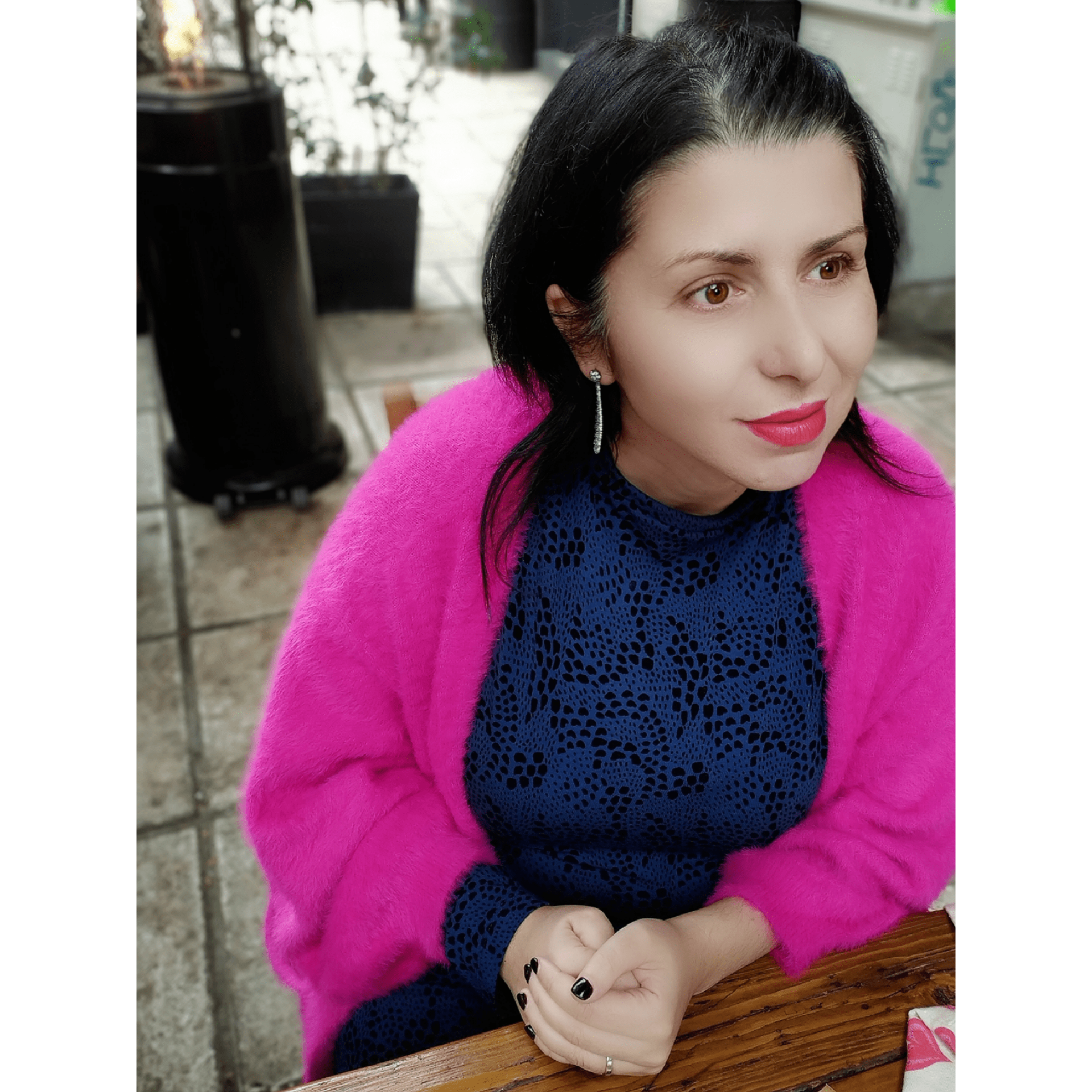Giota Gatsis, trainer
“My name is Giota Gatsis and I am working as a teacher in Arsakeio, a private school in Thessaloniki, for the last years. I hold a degree in French language and literature, with two postgraduate degrees in identity, interculturalism, teaching multilingualism and language policies. My recently completed doctoral thesis focuses on the pluri-disciplinary approach of educational practices for the empowerment of migrant pupils) of educational practices for the empowerment of children with immigrant and refugee backgrounds. My main research and writing interests focus on issues of identity and plurilinguism, especially for children with diverse linguistic and cultural backgrounds.” *
What is the most important thing you have gained through the “Schools for all” project?
I feel blessed to be part of this project, meeting experts and trainers who beyond their knowledge and considerable experience put their heart and soul into adopting an inclusive culture as a daily practice in our schools. I am fascinated with this fruitful interplay of experiential and interdisciplinary approaches that focus on the best interest of the child, where every child can gain a key role and place in schools.
So, the most important part is the people who, directly and indirectly, are involved in the program, who give you inspiration to keep creating materials, tools, practices, by contributing little by little so that schools have open doors for all children…
Are there any challenges during the implementation of the trainings? If yes, what are they? How do you respond to them?
I believe that there are always challenges in every contact, in every training, in every training process that we have to approach with empathy, active listening, good planning and consistency towards the actors/trainees. Every training is a unique experience, an interaction that the trainee, as well as every student, needs to feel safe, to feel that he/she can express the difficulties that concern him/her, but also to feel that he/she gets tangible tools to address any kind of difficulty.
Do you believe that “Schools for all” project differs from other educational programmes? If yes, why?
The fact that after the end of the training the project offers us the continuation of cooperation with schools for the planning of inclusive actions I think is a very important component. Through the training emerge needs and the basis for a common path for trainees and trainer are created, so during the whole year they can interact and jointly face the challenges of education by adopting a holistic approach and cultivating skills of a democratic culture.
In other words, the approach of the school as a whole through the possibility of intervening in the three pillars of the school, i.e., teaching learning and school culture, as well as opening partnerships with the wider community is a pioneer in the Greek context, bringing benefits not only to refugee students but also to natives. All the students have the possibility to develop their potential, strong self-esteem through this powerful experience. By building bridges between these three pillars, we have the opportunity to provide teachers with a methodology that goes beyond the walls of the classroom or school.
What means integration for you?
Let’s use the term inclusion because it is the process of educating children in such a way so that it benefits all students and entails a clear participation as well. Hence, it focuses not only on refugees but others as well. Therefore, the inclusive approach is considered as ‘education for all’. For us, inclusion means acceptance of each/everyone while maintaining his/her particular evolving identity and living together in harmony in order to lead to empowered societies.
In this difficult period of pandemic, the ethos of inclusion in schools is an objective to include the identity of every child, including children with an immigrant or refugee biography. The school experience is a stabilising factor for children with a refugee background. Schools can empower and bring about change; teachers have the power; after all, our schools are a miniature of our society. We dream of societies where we can all fit in.
What is your message for today (International Day of Education)?
All children learn best in a school for all that recognizes the right to diversity and respect for difference, that creates the foundations of a democratic society where everyone interacts fruitfully using their unique skills, free from racism and intolerance.
Teachers developing democratic values and attitudes through continuous education acquire the magical power of empathy. It is up to us to bring change and progress in any context from a tent in a refugee camp to the classroom with the state-of-the-arts equipment. Our students teach us to evolve every day…refugee students through the new languages and cultures and the power they bring show us the way to create open schools for a society open to all.
* More info about Giota Gatsis:
In collaboration with the IEP, the Ministry of Education, and other organisations and universities, Giota Gatsis has created educational materials for psychosocial empowerment of children and adolescents with multiple backgrounds. In formal and non-formal education, she has worked with unaccompanied minors and multilingual children and has trained teachers and education staff on interculturalism in Greece and abroad. She has been an Εducation Consultant for UNICEF (Non Formal Education Consultant) in many municipalities as in Thessaly and Northern Greece, involved in the planning of activities for the inclusion of children with refugee experience. Her particular field of expertise is the establishment of the languages of origin of refugee children in Greece, which she coordinates on a voluntary basis until today. Currently she continues to be involved in teaching, research, writing and training of teachers working with children with migrant/refugee backgrounds.





